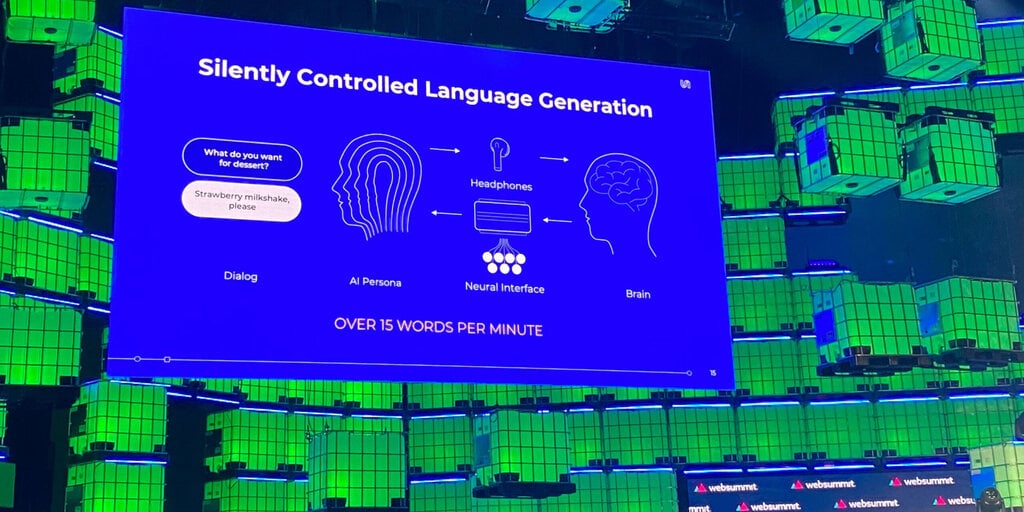Introduce yourself to the concept of thought processing and bid farewell to traditional reading. At the recent Web Summit gathering, Unbabel, a neurological technology company, showcased its groundbreaking Project Halo in a truly remarkable fashion. This innovative technology is designed to facilitate silent, thought-based communication between individuals and machines.
Project Halo operates by converting bioelectrical signal patterns into language through the integration of advanced AI concepts with a non-invasive neurological interface. Unbabel CEO Vasco Pedro highlighted the existence of a universal language within our neurons, emphasizing that different languages can activate similar brain regions when individuals contemplate a shared topic.
Demonstrating the functionality of Project Halo, Pedro showcased how users can listen to a message via earbuds and respond silently by merely thinking about their desired reply. The potential applications of this technology are vast, particularly in empowering individuals with amyotrophic lateral sclerosis (ALS) to communicate through text or audio messages discreetly.
One notable feature of Project Halo is its ability to interpret thoughts and generate natural language responses, setting it apart from other mind-reading AI endeavors. By integrating a language model that learns about the user’s preferences, interactions, and environment, the system can craft messages that accurately reflect the individual’s intentions.
While Project Halo is still in its early phases, Pedro envisions a commercial release by 2024, aiming to revolutionize communication by enabling seamless interaction for individuals of all physical abilities. The ultimate goal, as Pedro articulated, is to enhance AI capabilities and eliminate language barriers, fostering universal communication across diverse linguistic landscapes.






